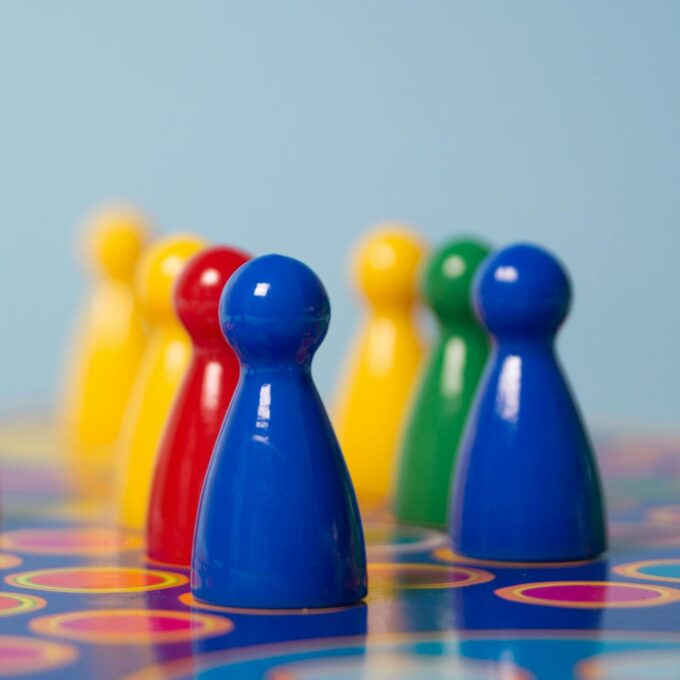
Photo by Othmar Vigl
Key Takeaways:
- Exploration of the multifaceted benefits that board games offer to family dynamics.
- Insight into the historical and educational significance of board gaming.
- Practical tips for incorporating board games into regular family life.
- Discussion on the positive mental health effects of board game play.
Table of Contents:
- Introduction to the Value of Board Games
- Reviving Family Game Night in the Digital Age
- Board Games Through the Ages
- Contemporary Board Gaming: A Thriving Industry
- Cognitive and Interpersonal Benefits of Board Gaming
- Creating a Successful Family Game Night Experience
- Board Games in Education and Child Development
- Social Benefits and Icebreaking Capabilities of Gaming
- Emotional Wellness and Board Games
- Eco-Conscious Gaming: Making Ethical Choices
- Future Trends in Family Gaming
Introduction to the Value of Board Games
Board games offer a unique value proposition in the era of omnipresent screens, providing families with an interactive way to spend quality time. While the digital world offers many conveniences, nothing can replace the tangible, shared enjoyment that comes with gathering around the living room table, unfolding a board game, and stepping into a collective adventure. These traditional forms of play, such as the variety of family board games found today, create a nurturing space for families to bond and engage with one another on a deeper level.
Reviving Family Game Night in the Digital Age
The resurgence of board games in contemporary culture signifies a desire to rediscover interpersonal connections that have become rarer in the digital age. As electronic devices increasingly draw individual attention, board games have become a beacon for collective focus. They allow for an analog escape that fosters social interaction, strategic thinking, and playful competition, all while seated side by side.
Board Games Through the Ages
Board games are one of humanity’s oldest pastimes, tracing back to the earliest civilizations, where they often bore significant cultural and societal symbolism. Egyptian Senet, Chinese Go, and Norse Hnefatafl are just a few examples of how these games entertained and reflected the morals, warfare strategies, and hierarchies of their times. Analyzing their evolution, one uncovers a rich history of how families interacted through play and how games passed down stories and knowledge through the generations.
Contemporary Board Gaming: A Thriving Industry
The board game industry has experienced a remarkable boom, transcending its image as mere child’s play to become a sophisticated, adult-friendly entertainment medium. Its market growth indicates a burgeoning demand for quality family-oriented games, a point noted by industry analysts. The trend underlines a vibrant gaming culture where new board games are regularly created, funded by passionate communities, and brought to life through platforms that connect enthusiasts worldwide.
Cognitive and Interpersonal Benefits of Board Gaming
Playing board games is an amusing pastime and a constructive endeavor that sharpens the mind and fortifies relationships. Regarding cognitive development, players are often required to engage in complex decision-making, enhance their memory, and develop strategic planning skills. The interpersonal angles of board gaming are equally significant, promoting empathy, patience, and nuanced communication as players interpret non-verbal cues and negotiate gameplay.
Creating a Successful Family Game Night Experience
The successful family game night is characterized by a warm, inclusive environment that invites playfulness and laughter. It’s about choosing games that align with the family’s interests and skill levels to ensure everyone can participate meaningfully. Some of the best memories stem from these evenings spent competing and collaborating, making strategic decisions, and learning from one another in a relaxed setting.
Board Games in Education and Child Development
Children derive immense educational value from board games. Teachers and educational theorists have long recognized that these games can be powerful learning tools that encourage critical thinking, literacy, numeracy, and socialization in young learners. The discussion of the application of board games in classrooms highlights the role of these games in fostering key social skills and classroom engagement.
Social Benefits and Icebreaking Capabilities of Gaming
Board games are social catalysts, breaking the ice among strangers and knitting family members closer together. They offer a communal experience that primes individuals for conversation and mutual enjoyment. Within a family setting, they can significantly enhance the togetherness of parties, reunions, and everyday interactions, acting as vehicles for creating a robust familial community.
Emotional Wellness and Board Games
Board games offer a reprieve from the stress of daily life, ushering players into a state of play that can be meditative and therapeutic. Engaged in the goal-oriented pursuit of moving pieces across a board, individuals find their everyday concerns momentarily eclipsed by the game’s enjoyment, contributing to a sense of well-being and emotional balance.
Eco-Conscious Gaming: Making Ethical Choices
The growing awareness of environmental issues has seeped into the production and consumption of board games. There is an emphasis on using sustainable materials and ethical manufacturing practices to ensure that the joy of gaming does not come at a high ecological cost. Many game manufacturers now prioritize eco-friendly initiatives, reflecting a shift in the industry towards responsible consumption.
Future Trends in Family Gaming
The future of family gaming looks bright, with continuous innovation and the rise of indie games offering fresh perspectives and experiences. With each new game, there is the potential to bring families together, challenging and entertaining them while fostering the timeless tradition of shared gaming experiences. As we look to the future, we anticipate a legacy that values face-to-face interaction and the joy of collective play as central pillars of family bonding and learning.














